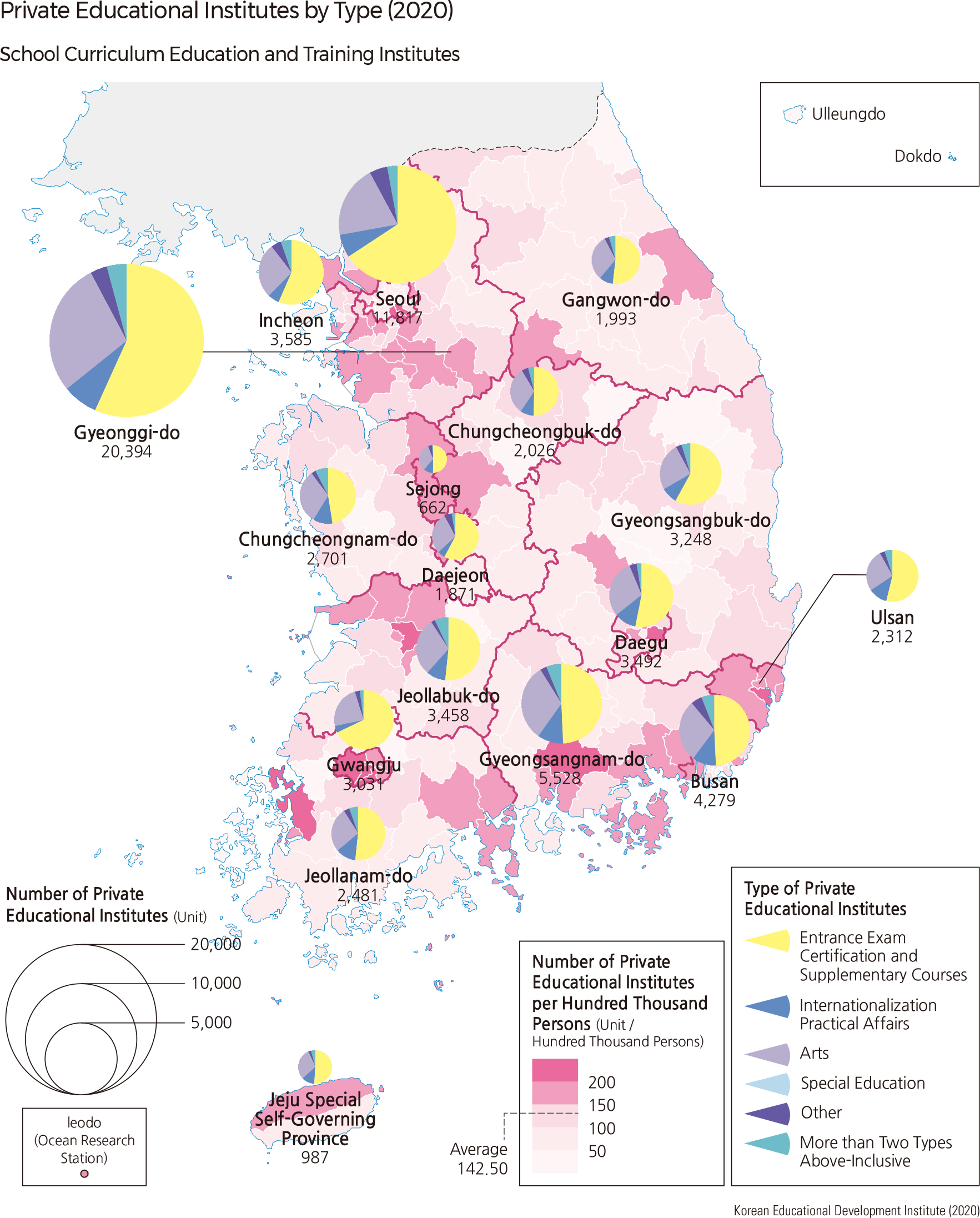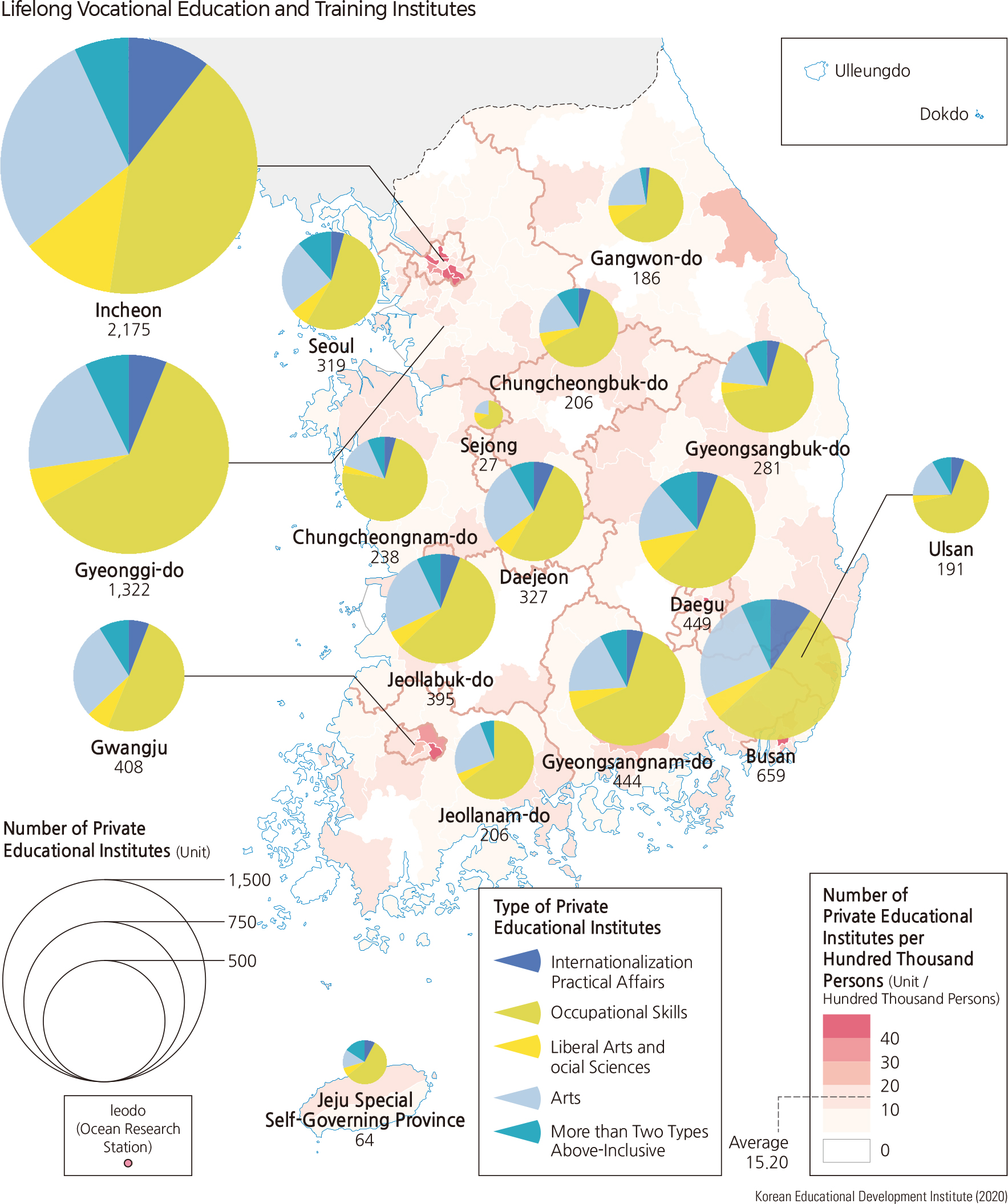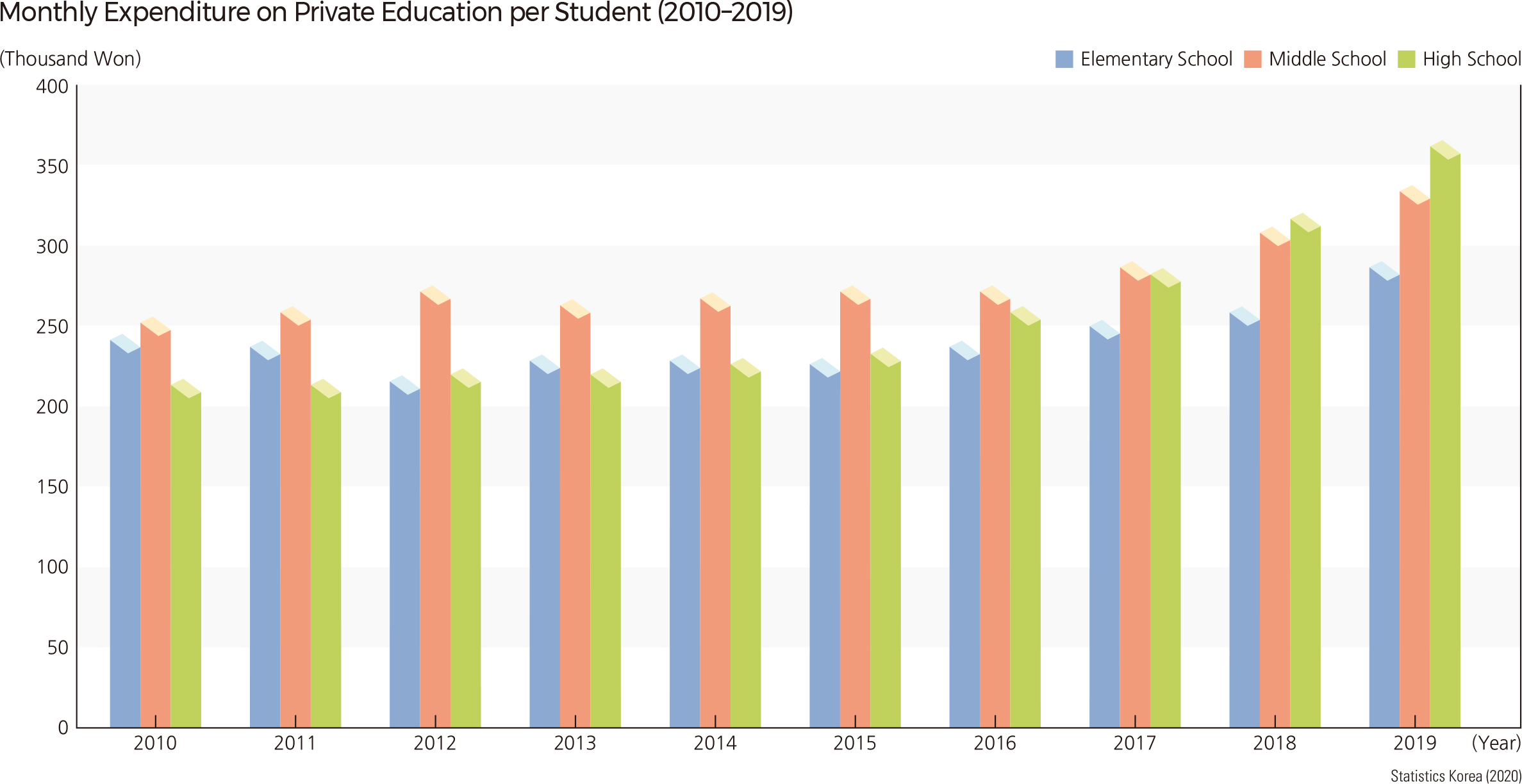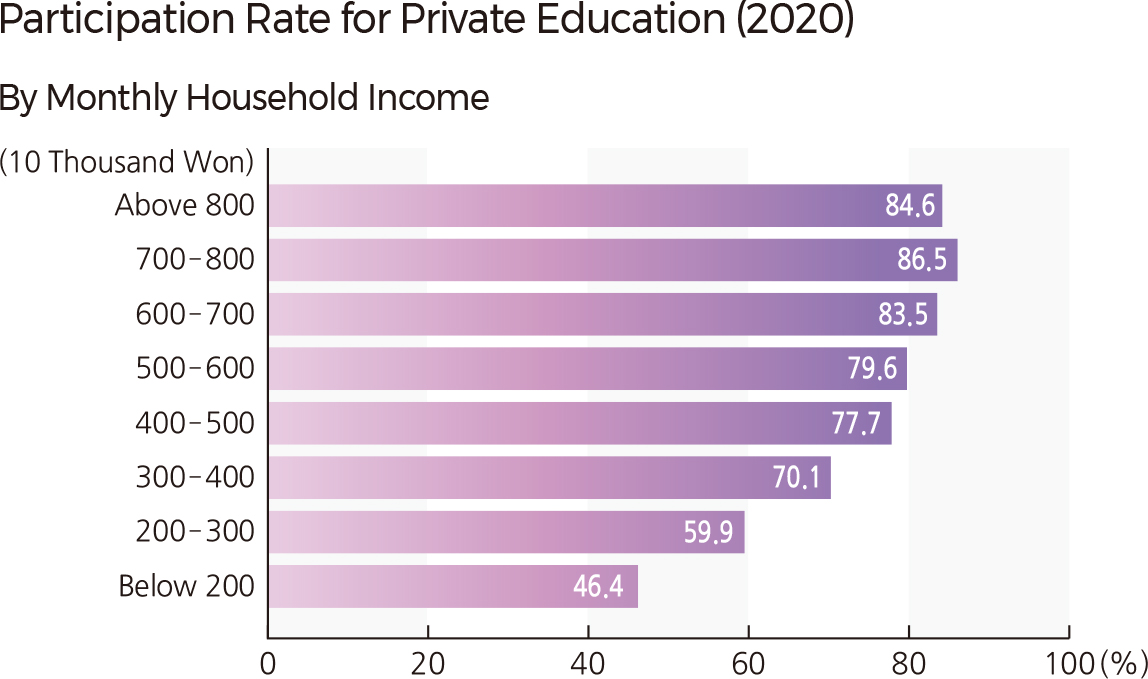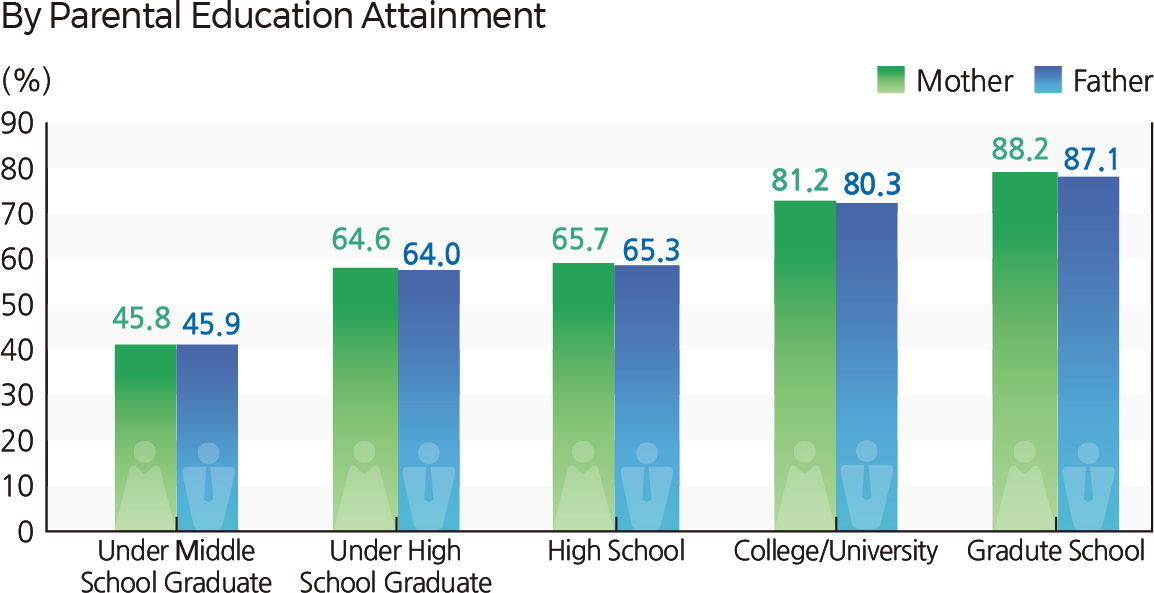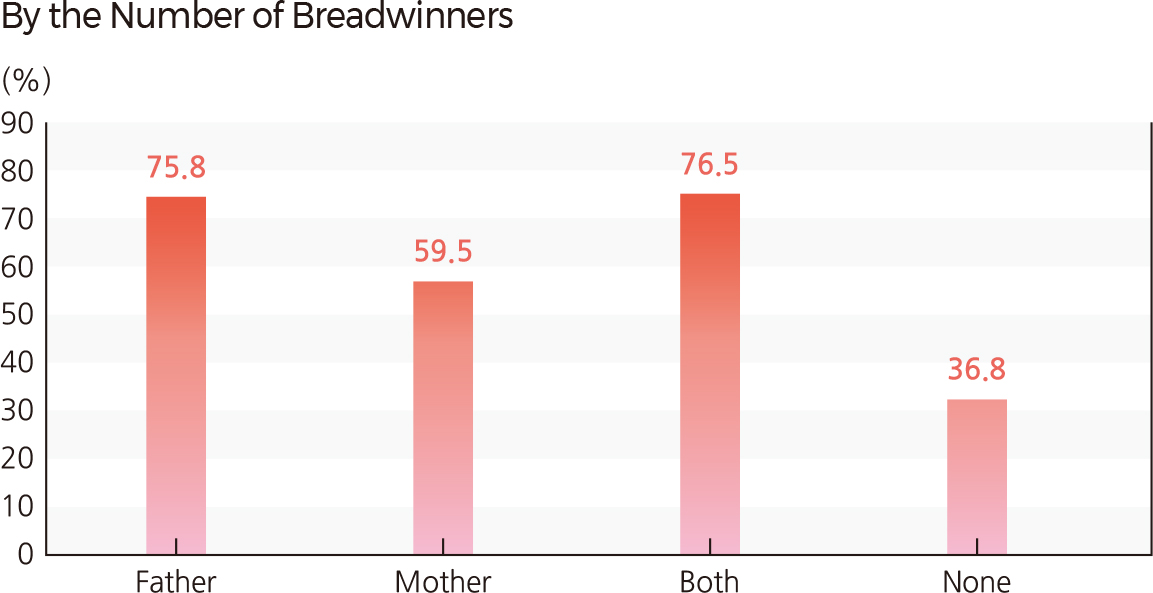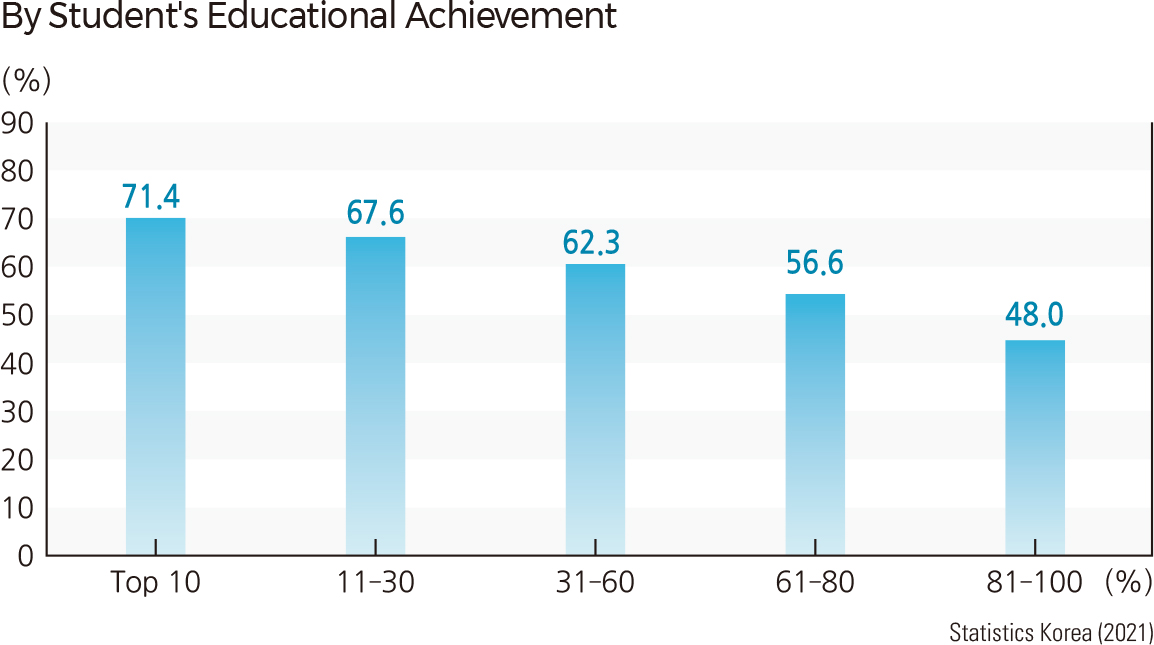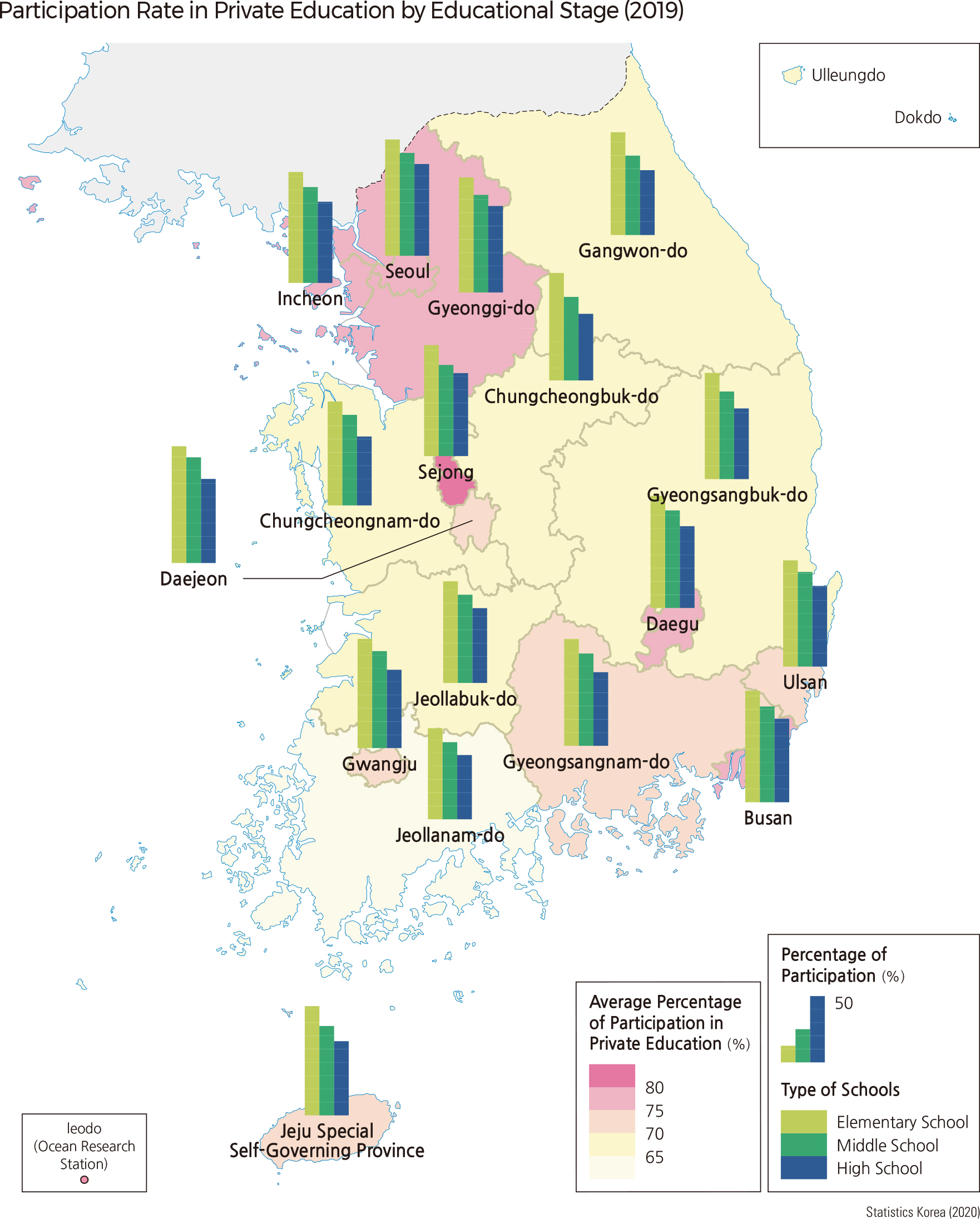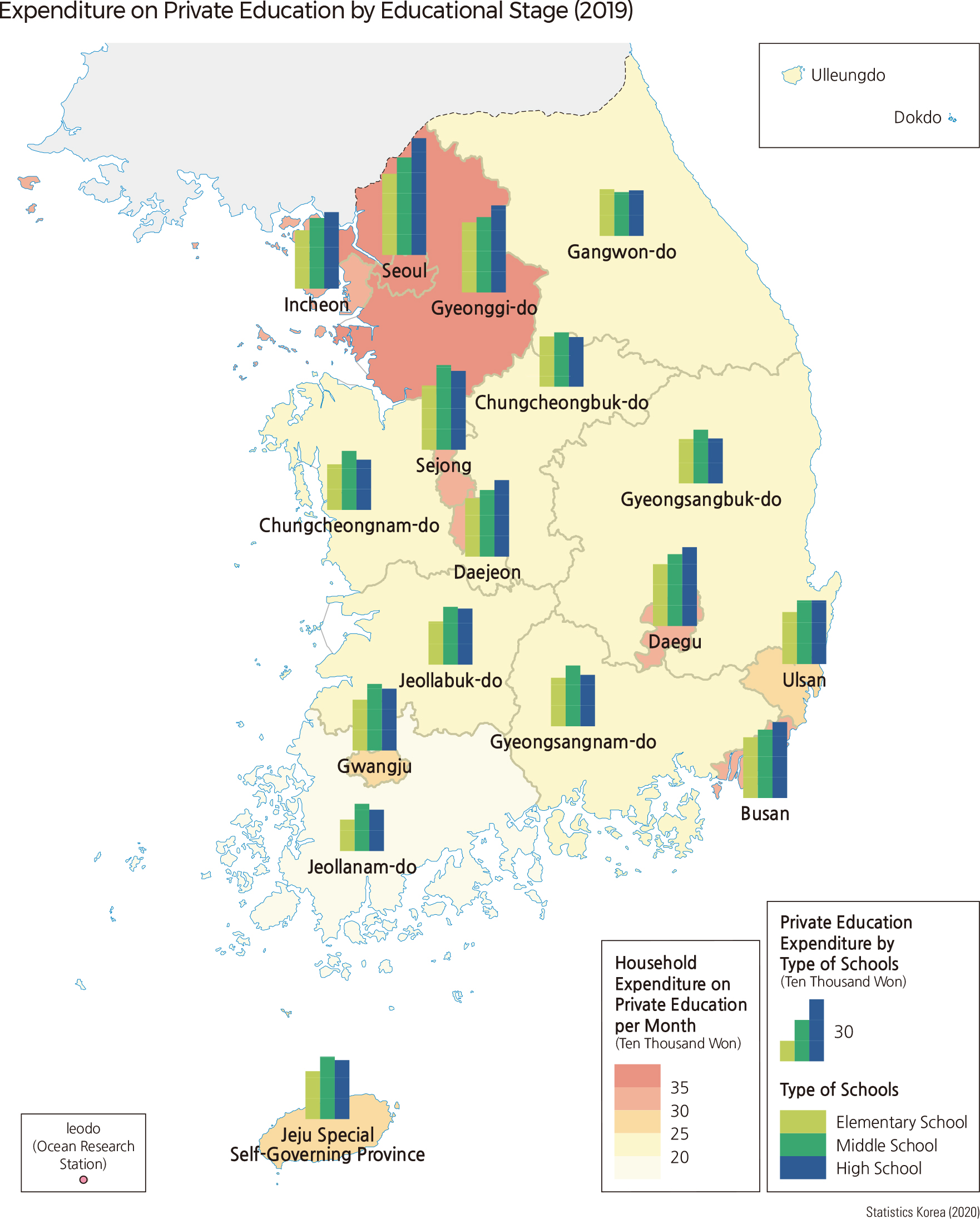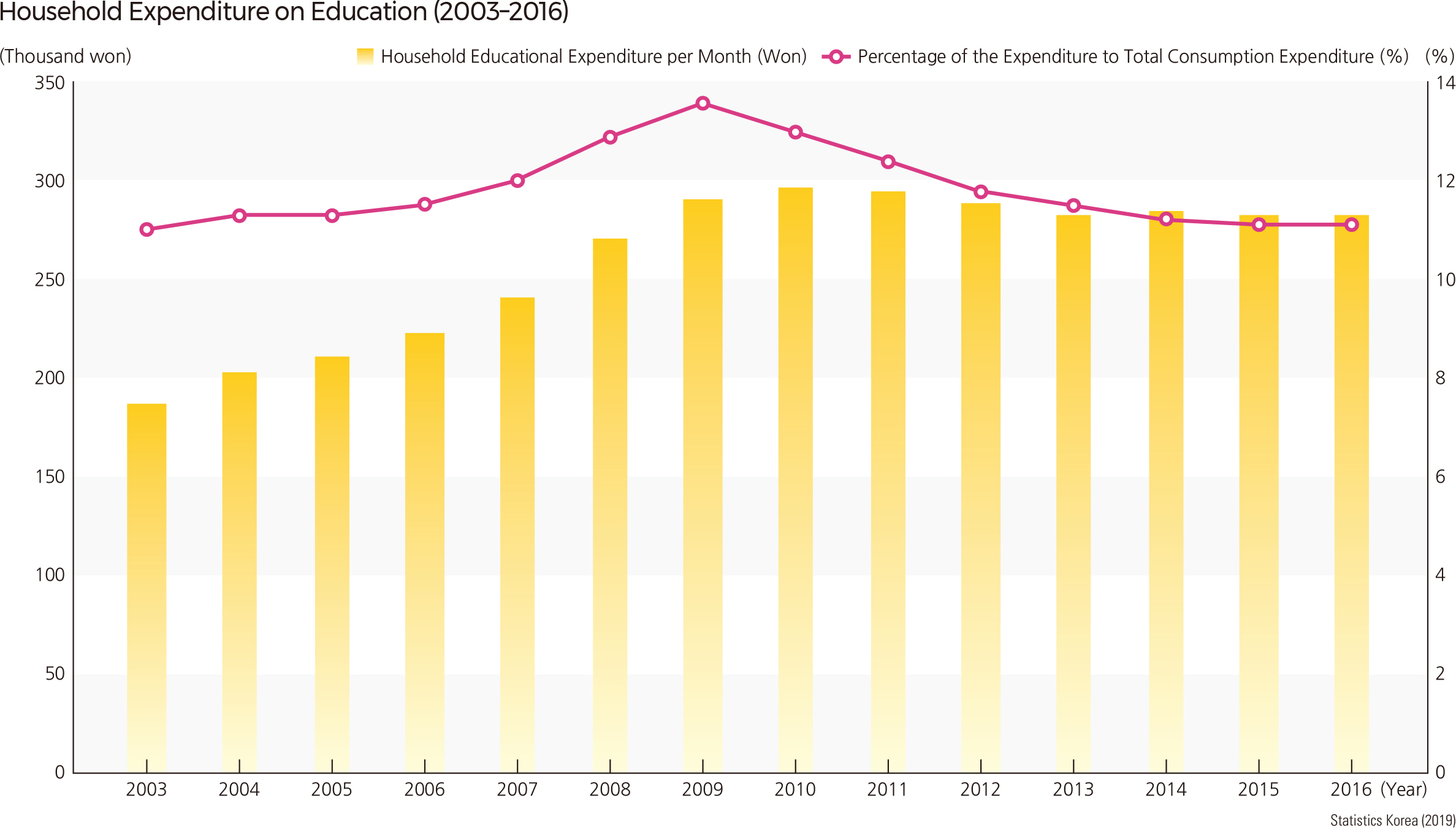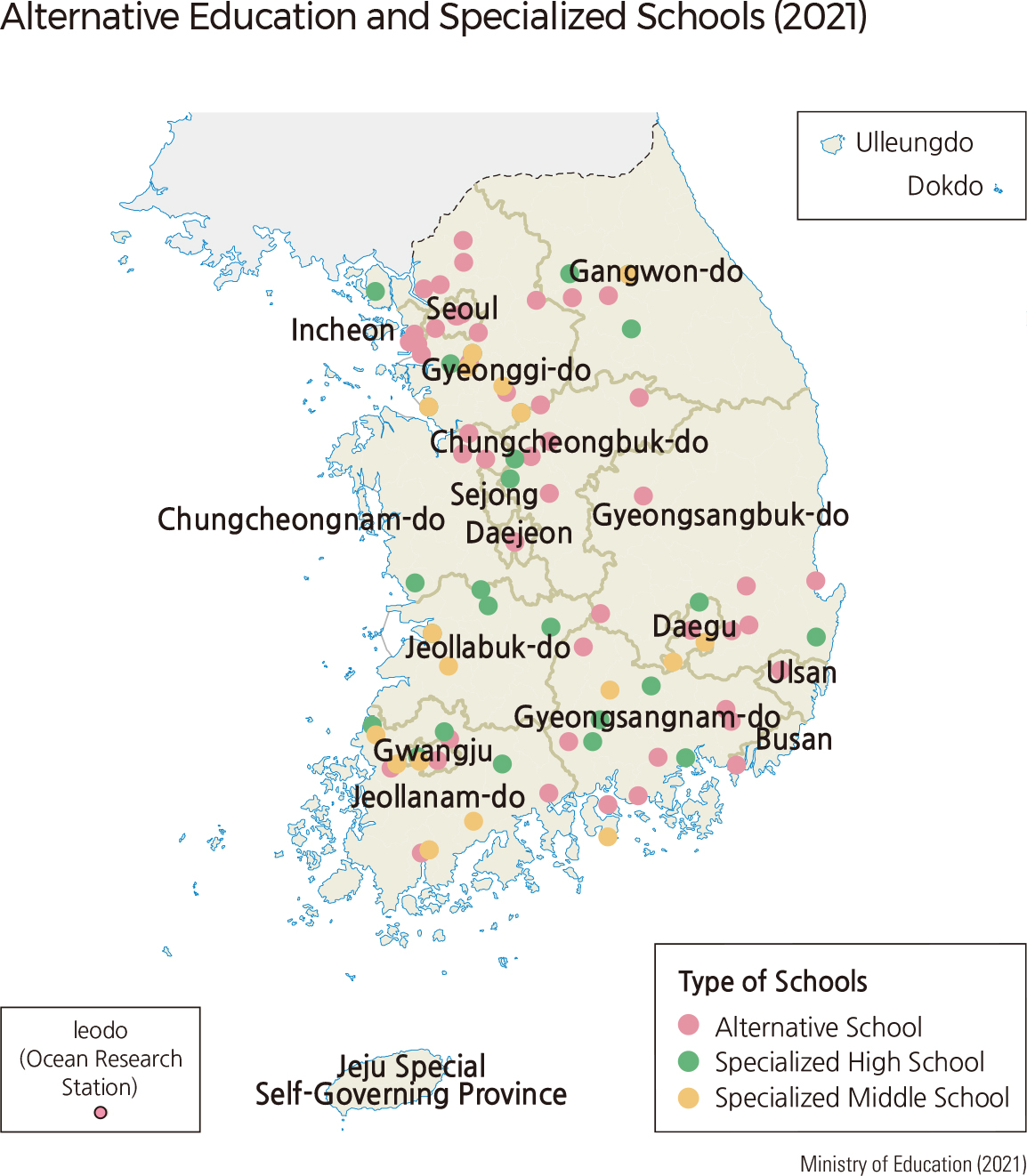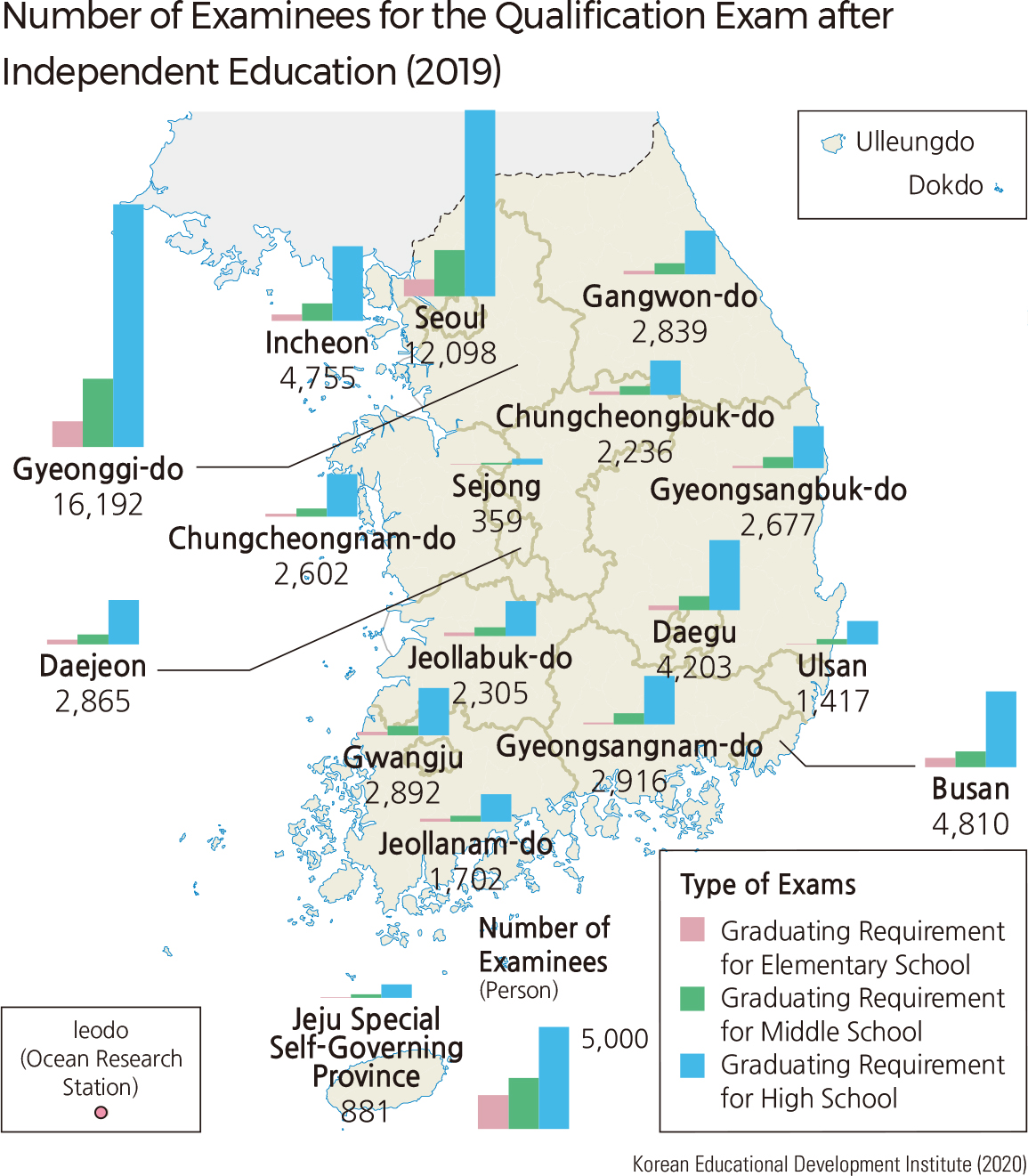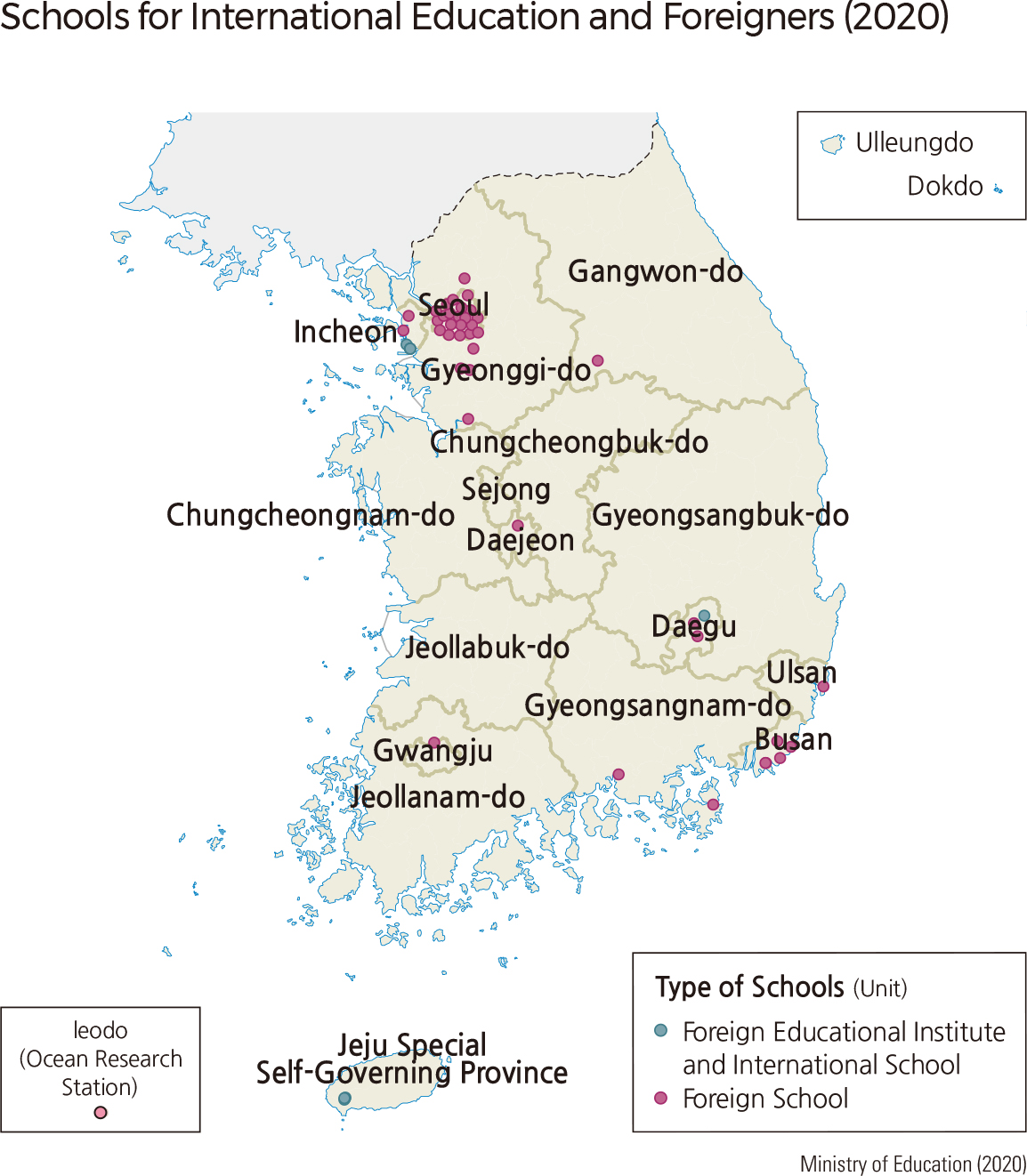English III 2021
The enthusiasm for education has been praised for promoting and developing excellent human resources in Korea. However, excessive private education is a large part of the problem for Korean education in terms of parents’ financial burden and the disparity of available private education opportunities between regions and social strata. Recent statistics reveal that a very high proportion of students begin private education in elementary school. The average household spending on education is about 280,000 won, which is about 11% of total household expenditures. The proportion of household expenditure on education declined to 13.5% from its peak in 2009. Government policies, such as reforming the college entrance exam system, banning prerequisite learning, and enforcing educational broadcasting, have been implemented to lower private education costs. In addition, it is reported that the choice for private education is closely related to the social and economic condition of the parents. A survey shows that the higher the household income level and academic degree of the parents, the more likely they spend more on private education for their children. Therefore, differences in children’s academic achievement may occur depending on participation rates in private education. Regionally, private institutes are concentrated in the Seoul Metropolitan Area and other metropolitan cities. In addition, a difference in expenditure on private education between metropolitan regions and other regions exists, which has prompted a concern that educational gaps between social classes and between regions will be enlarged. Private institutes are classified as supplementary educational institutes and lifelong educational institutes by the subject and purpose of education. In general, private institutes are supplementary education institutes that provide school curriculum tutoring for preschool students and elementary, middle, and high school students. Lifelong educational institutes are significantly fewer than supplementary ones. However, the number of lifelong education institutes, instructors, and registered students has increased as interest in lifelong education and professional qualification has increased. However, there are no lifelong educational institutes in some rural areas, so the regional gap between urban and rural areas becomes problematic. School qualification examination is a system to evaluate whether those who did not complete the school curriculum have the same academic abilities as those who completed the school curriculum at regular school education. This qualification examination is conducted only for elementary, middle, and high school curriculum. The number of applicants varies by region and type of qualification. From 2015 to 2019, the number of applicants for the elementary school graduation qualification exam was generally increasing, while those for the middle and high school graduation qualification exam were decreasing. As the number of foreigners residing in Korea has increased, so have the foreign educational institutions and foreign schools. Foreign educational institutions are established by a corporate body operating foreign educational institutions in Korea. Foreign schools are established to provide cultural home education for children of foreigners living in Korea. These foreign schools provide education tailored to each country’s curriculum and admit foreigners and some Korean students who have lived in the relevant foreign country. In addition, Jeju international schools, which specialize in international education in Jeju Global Education City, were established by the Jeju Special Self-Governing Province. The educational institutions of foreign countries directly operate foreign educational institutions in designated areas. Alternative schools and specialized schools provide unique education that cannot be adequately addressed in a traditional school environment. These schools offer specialized education in accordance with their educational goals, such as instruction in religion, music, global education, and environmental studies. |
